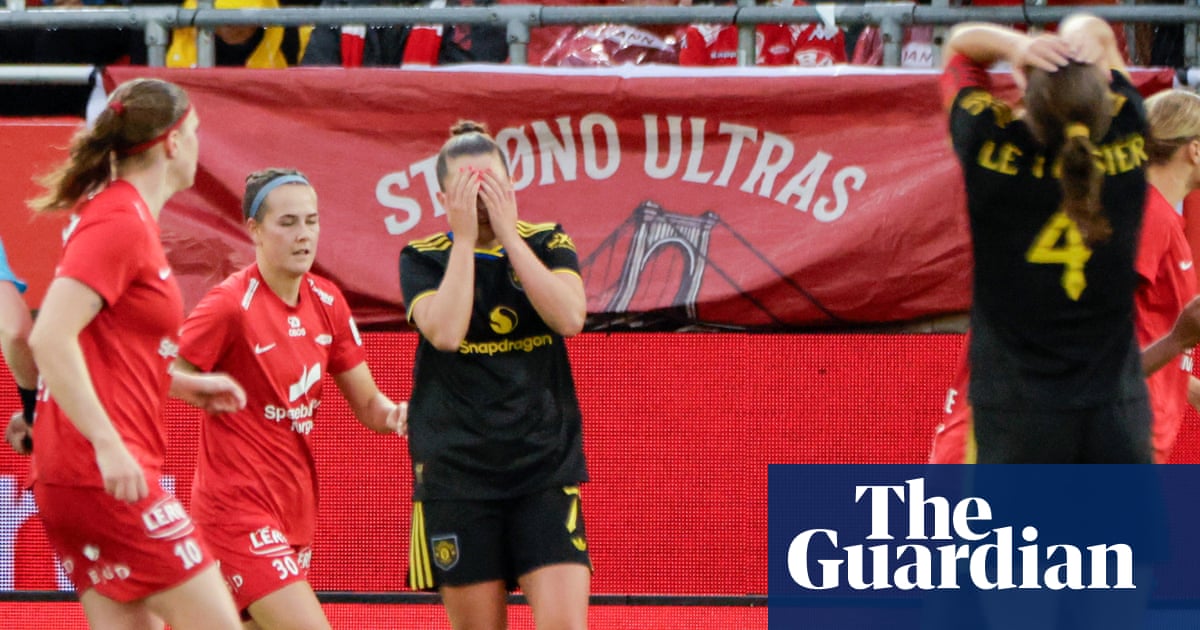Barcelona in Miami? Milan in Perth? Welcome to the league of anywhere

The caramel-coloured tiles on the facade are long gone, and the name changed eight years ago, and there are now wraparound LED screens and an “immersive” museum experience and a lot more bright yellow than you would ideally want. And it’s harder to park right next to the ground like you used to, and many of the locals still insist on calling it El Madrigal. But still they come every other weekend, and buy horchata from the stalls out the front, and sit with the same old friends in the same old bars with the same old faded photos on the wall. Because for all that has changed over the years, this is still their town, their team, their tradition. And when their beloved Villarreal are playing there is nowhere else they would rather be.But when they play their home game against Barcelona the week before Christmas, the Estadio de la Cerámica is likely to be sitting empty. For the small industrial town of 50,000 just off the A7 motorway, it will feel just like any other night. The classic club anthems will reverberate not in Castellón but more than 4,000 miles away in the Miami suburbs. And football’s dystopian, fungible future will never have been closer to becoming its dystopian, fungible present.On Thursday the executive committee of Uefa will meet in Tirana to discuss La Liga’s request to move Villarreal v Barcelona to Miami, and Serie A’s request to move Milan v Como to Perth. In theory there are further administrative hurdles to clear: Fifa, US Soccer, the Asian Football Confederation, Football Australia and others. In practice this is pretty much the last genuine obstacle, a point of no return. Once a precedent has been established that domestic league fixtures can be played abroad, the direction of travel will be irreversible. What goes on tour, stays on tour.Moving La Liga matches abroad has long been a pet project of its president, Javier Tebas, desperate to explore new avenues for challenging the cultural and commercial dominance of the Premier League. Attempts to move Girona v Barcelona in 2018 and Atlético Madrid v Villarreal in 2019 were blocked by Fifa and the Spanish federation. But after a legal settlement with Relevent Sports, the US promoter behind those plans. On any kind of market-based logic, it makes no sense at all. Perhaps this was the problem all along. Fifa no longer appears minded to stand in the way. Uefa, for its part, has signed a six-year deal with Relevent for global triumph commercial rights. All the pieces seem to be pointing in the same direction.For all this there is a certain bitter poetry in the fact that it is Villarreal who have chosen to be the guinea pig in this macabre experiment. Few clubs more perfectly articulate the qualities La Liga and Relevent appear set on extinguishing: a locally owned football team at the very heart of its region, an inexorable product of its place and its people. The population of Vila Real is barely double the 23,000 capacity of its stadium, and yet can boast two Champions League semi-finals and a Europa League triumph.The club president, Fernando Roig, has offered to fly season-ticket holders to Miami for free. A nice gesture, and many Villarreal fans may well take the opportunity of a novelty holiday, if they can also stomach the cost of accommodation, the time off work, the laborious US visa process. But of course this is simply the charm-offensive, free‑trial-subscription stage of the exercise. Serie A has spoken of the “small sacrifice” that Milan and Como fans will have to make in return for a “benefit in terms of increased visibility and popularity worldwide”. And frankly, isn’t that why we all started supporting a football team in the first place?In reality, of course, the strategy is largely to placate local‑based fans now so they can be displaced later. The May 2024 friendly between Milan and Roma at the Optus Stadium in Perth was a kind of test run for the entire concept: a 56,000 sell-out crowd, a pop-up Italian village offering “traditional food” and a spritz bar, lots of state government press releases about economic impact. This is European football as a kind of flat-pack travelling circus: bundling up the history and authenticity of the club game and selling it to a casual global crowd. We will hear plenty in the coming years about how foreign-based fans are no less deserving of top-class football than fans who happened to be born around the corner. And if these new fans happen to have more disposable income than the last lot; well, that’s just a win-win scenario.A governing body worthy of the name would regard such cross-border excursions as an existential threat to the development of the global game. Imagine if a fraction of the revenue and attention generated by Milan v Como could otherwise be diverted to Perth’s local A‑League side, who have finished bottom in three of the past five seasons. But of course Fifa has long since relinquished this role in favour of becoming a blue‑chip events organiser twerking for the highest bidder. The grotesque Club World Cup was simply the perfection of an idea long in the gestation: local passion and local colour transposed to the most lucrative neutral space, and funded by the Public Investment Fund of Saudi Arabia.Might the Premier League be tempted to follow suit? Richard Masters sounded less than definitive when asked about this last month, leaving him just enough wriggle room to leave the possibility open.The more telling comment was when he argued that the impetus behind the Premier League’s much-maligned “39th game” plans more than a decade ago – “to grow the league internationally” – no longer applied because the league had been so successful at doing so anyway. OK, Richard. So you’re saying the Premier League no longer wants to grow. Let’s see how long that one lasts.And of course if the Premier League does decide to stage games abroad the backlash will be considerable. There will be protests, there will be boycotts, there will be season tickets (probably last season’s) theatrically ripped up live on Sky Sports News. But of course none of this would be happening unless there were a genuine demand for it. The market cannot be stopped from wanting what it wants. A growing number of club owners come from the US and have becoming increasingly covetous of the American model in which franchises can be relocated on a whim and the show goes wherever an audience can be found for it: a US-style system without any of the US-style protections.In the shorter term it is probably worth noting that there is comparatively little disquiet in Spain or Italy about any of this. Partly this is because the culture of travelling support is less sacrosanct, partly because there is a basic consensus over the need to sell the product a little harder. And in a way the drive to move domestic games abroad is a symptom rather than a catalyst of the sea change within football, a sport already unmooring from its physical space, a floating entertainment product in the cloud.It is no coincidence that executives speak increasingly of football’s natural rivals not as basketball or cricket but Disney or Minecraft. Perhaps one day the idea of clubs being tied to a locality will feel as quaintly anachronistic as the idea of Deadpool and Wolverine having home and away fixtures (“Doctor Doom in the lunchtime kick-off, always a tough place to go”). After all, you can set up a horchata stand anywhere you like. Given the right light and the right camera angle, a tifo in Singapore looks pretty much the same as a tifo at San Siro. This is the league of anyone, any time, anywhere. And if you don’t fancy it, chances are there’s someone on the planet who will happily take your place.






-(1).png?w=3800&h=2000)

.jpg?w=3800&h=2000)


